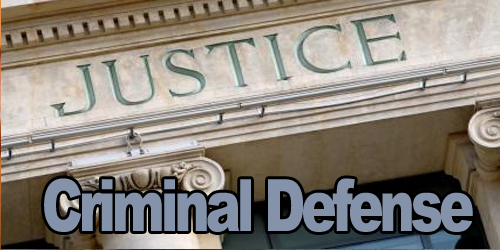
Click on the question below to reveal the answer.
Q: What is a violent crime?
A: Examples of violent crimes would be: arson, assault, battery, child abuse, domestic violence, homicide, mayhem, murder, rape, and robbery among others. These crimes are generally felonies.
Q: What’s the difference between a felony and a misdemeanor?
A: The potential punishment generally is the deciding factor in whether a crime falls into one category or the other. If imprisonment for longer than a year is the punishment provided by law, it is usually considered a felony. If the potential punishment is for a year or less, then the crime is considered a misdemeanor. Some states evaluate the conditions or situations of certain crimes. Under some conditions, the punishment may be imprisonment for less than a year, under others, the criminal may go to prison for a year or more.
Q: I was a crime victim. Now, how do I drop the charges?
A: You may discuss your case with the prosecutor. In a criminal prosecution, however, the decision to drop charges is only made by a prosecutor with the approval of a judge.
Q: What is a grand jury?
A: A grand jury consists of twelve citizens who consider whether felony cases should lead to indictments. Grand jury proceedings are generally closed to the public, and witnesses take an oath of secrecy before testifying.
Q: What are interrogatories?
A: Written questions prepared by one party in a lawsuit, to be answered under oath by the other party (or parties).
Q: What is a deposition?
A: A formal interview under oath in the presence of a court reporter. The answers in a deposition are oral.
Q: What is a pretrial hearing?
A: If an indictment is returned by a grand jury in a felony case, the case will then be scheduled for a pretrial hearing. At the pretrial hearing the defendant and his attorney usually advise the judge whether the defendant wants a trial or will plead guilty. Also, if a trial is desired, whether a jury will be required. Certain motions concerning legal issues may also be heard at a pretrial hearing.
Q: Isn’t there supposed to be some kind of help for the victims of a crime?
A: You may apply under the Crime Victims Compensation Act for compensation for reasonable medical, drug, counseling and rehabilitation expenses. I’m a witness.
Q: What if I can’t attend court on the date in my subpoena?
A: You should contact the District Attorney Investigator immediately to discuss your conflict. The conflict in schedule will be assessed for you.
Q: Why does a good defense lawyer cost so much?
A: Criminal law is complex and the need for more education has increased. Cost of legal services is generally directly related to the amount of time a lawyer and his or her staff must spend on a case. There are also costs involved in investigative services and various court filings.
Q: Why is it take so long before my court date?
A: Actually, delays are not as long for criminal cases as they are for civil cases. The life and liberty of the accused take priority over civil cases involving financial issues. The court system does have a heavy load of cases, however, making scheduling difficult.
Q: What is white collar crime?
A: White collar crime is generally non-violent crime committed by corporations, their employees and officers, and individuals. Examples of white collar crime would be: bribery, extortion, embezzlement, securities fraud, theft and other violations of trust committed in the course of employment or business practices, including bribery, government contract fraud, insider trading, mail fraud, perjury and false declarations, price-fixing, racketeering, RICO , and stock manipulation among others.
Q: I am charged with DWI. I was drinking, Does that make me a criminal?
A: Actually, yes, if convicted of this. Driving under the influence of alcohol and / or drugs has become America’s most common crime. DUI / DWI can be based upon alcohol, illegal drugs, prescription or non-prescription medications, inhalants, or a combination of these substances.
Q: What will it cost ?
A: We handle criminal cases on a fixed fee basis. Our fee covers all aspects of the case. Please feel free to call for a consultation where fees will be discussed.
Q: What are my chances of success?
A: The outcome of your case depends on the facts and circumstances. Our first inquiry concerns guilt or innocence. If the state can prove guilt, we make every effort to negotiate the best result possible. We are very knowledgeable in all aspects of alternative sentencing programs.